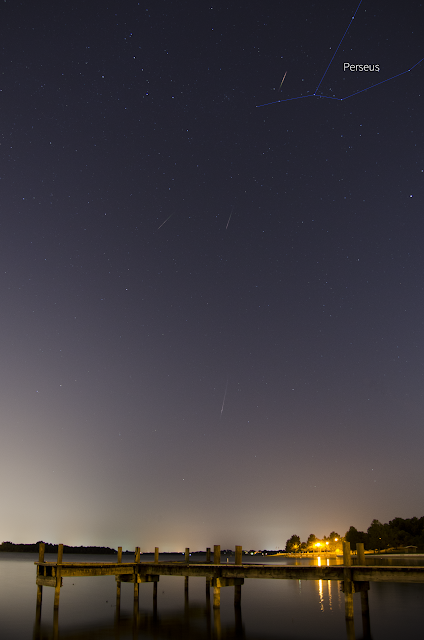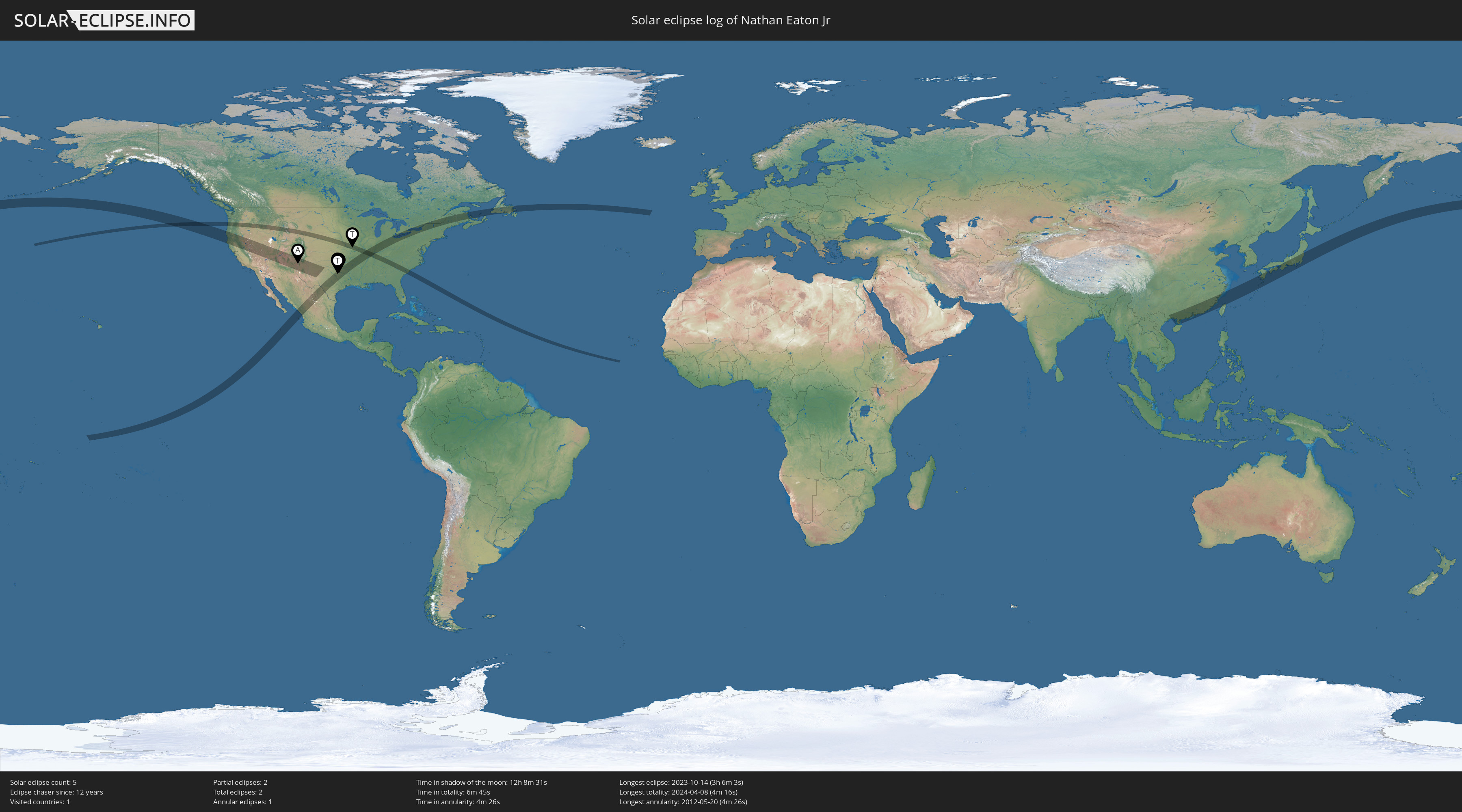Named for the constellation from which they appear to originate, Perseus, the Perseid meteor shower is the result of the Earth plowing into dust and particles left behind by past journeys through the Solar System of comet Swift-Tuttle.
Read more about the Perseids on Space.com.
This is a blend of four images captured with Nikon D7000 and Tokina 11-16mm f2.8 between 4:30 and 5:30am in Garland, Texas. Thanks to David Kingham for the blending technique (here).
Image shared by EarthSky (tweet, Facebook)
Friday, August 12, 2016
Thursday, August 11, 2016
Fireballs!!
Two Perseid meteors over Sunnyvale, Texas pre-dawn Aug 11th (top one cut off mid-flight).
Raw, unedited image
More on the 2016 Perseid meteor shower here.
Tags:
Meteor Shower,
Perseids
Monday, May 9, 2016
2016 Mercury Transit: Video Clips
After starting the morning watching the transit online, there were finally a few breaks in the clouds, allowing me to capture portions of the transit myself, assembled into the video below. High wind also hampered things, making it tough to get a sharp focus and steady image, but it was still an incredible thing to watch.
Equipment:
60mm Parks refractor on German equatorial mount
Baader film solar filter from Kendrick Astro Instruments
Orion EQ-1M drive (for solar tracking)
Nikon D7000 (attached with T-adapter)
dslrDashboard on Nexus 9 tablet for remote viewing and camera control
Music: Mercury, the Winged Messenger from The Planets by Gustav Holst
Created with iMovie on a Macbook Pro
Equipment:
60mm Parks refractor on German equatorial mount
Baader film solar filter from Kendrick Astro Instruments
Orion EQ-1M drive (for solar tracking)
Nikon D7000 (attached with T-adapter)
dslrDashboard on Nexus 9 tablet for remote viewing and camera control
Music: Mercury, the Winged Messenger from The Planets by Gustav Holst
Created with iMovie on a Macbook Pro
Astronomical event of the year: Mercury Transit 2016
In spite of clouds and windy conditions, I've managed to capture a few shots of Mercury crossing the face of the sun. It's a relatively rare occurrence, though not as rare as a Venus transit which I've also watched (see here). Very cool.
It's still in progress through 1:42pm Central today so you might still have a chance to check it out.
For information on the transit:
For information on the transit:
To watch online:
How to Watch Transit (Space.com)
Click on any image below to view large.
Click on any image below to view large.
 |
The makeshift wind screen I'm using to minimize how much wind shakes the telescope (which affects stability of images)
|
Tags:
baader film solar filter,
mercury,
sun,
telescope,
transit
Thursday, February 11, 2016
Extra! Extra! Read All About It! Gravitational Waves Detected!
More proof for Einstein's Theory of General Relativity
This is big enough news that I just had to post. I've been very lazy about posting over the past few years but this is just too incredible to not highlight.
It will be exciting to see the developments that come out of this. Could we be watching a video recording of black hole collisions in a decade or so, one captured using a gravitational detector camera? That could be cool but I'm sure there are even more important scientific developments coming, presumably leading to an even deeper understanding of our universe.
Check out Bad Astronomer for more on this breaking news.
Special APOD Post for February 11, 2016
This is big enough news that I just had to post. I've been very lazy about posting over the past few years but this is just too incredible to not highlight.
It will be exciting to see the developments that come out of this. Could we be watching a video recording of black hole collisions in a decade or so, one captured using a gravitational detector camera? That could be cool but I'm sure there are even more important scientific developments coming, presumably leading to an even deeper understanding of our universe.
Check out Bad Astronomer for more on this breaking news.
Special APOD Post for February 11, 2016
Subscribe to:
Comments (Atom)
























